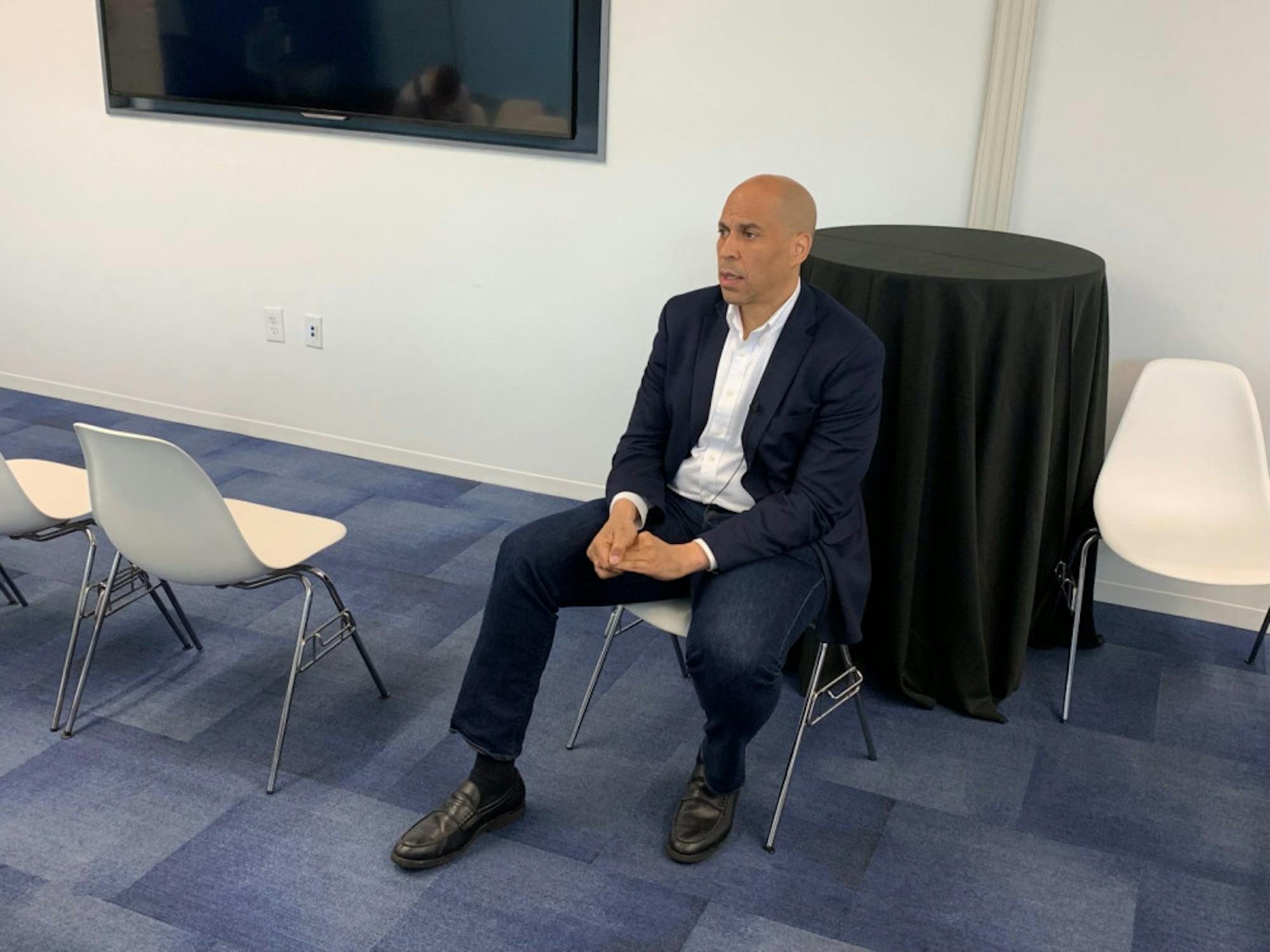
During a two-day visit to Atlanta, Democratic presidential candidate and U.S. Sen. Cory Booker (D-N.J.) said on Thursday that his campaign will not focus on attacking U.S. President Donald J. Trump.
“If you insult 60 million voters by saying that what we’re about is being against Donald Trump, we’re not going to win the election,” Booker said.
Demonizing the president, he explained, would turn away rural Americans who voted for Trump in the 2016 election.
“It’s not about what you’re against, it’s what you’re for,” Booker said.
Booker’s remarks about his 2020 strategy came as part of an interview with the Wheel during his second stop on a national campaign tour following his declaration of candidacy for president on Feb. 1.
Facing a crowded field of Democratic challengers, the presidential hopeful said his experience working in municipal and federal governments distinguishes him from other candidates and allows him to connect to all people, especially young voters.
“I was a chief executive of a city and a senator who was able to get major bipartisan bills passed,” Booker said. “In fact, the only major bipartisan to pass under this president was criminal justice reform [bill], which I know a lot of young people care passionately about.”
Booker touted the importance of finding “common ground” for historically partisan issues to unify voters. He pointed to limited bipartisan support among young voters for fighting climate change, marijuana legalization and expungement of low-level drug offense records.
Booker, a Christian, argued that religious affiliation should not be divided along partisan lines.
“I get frustrated sometimes that people think that the people who talk about religion in politics are Republicans. I reject that,” Booker said. “I think that weakens the Democratic Party, and I’m not going to be one of those people who’s afraid to have those conversations about faith.”
Booker said that while he is “very open” talking about his religion, he values actions over practice.
“I would much rather hang out with a really nice atheist than a mean Christian any day of the week,” he said.
Booker noted he finds great inspiration and energy in learning about other faiths, comparing it to the way “Martin Luther King Jr. found inspiration from a Hindu.”
Booker, who attended Stanford University (Calif.) on a football scholarship, was a Rhodes Scholar and graduated from Yale Law School (Conn.).
His motivation to enter politics came from social activist Geoffrey Canada, founder of the Harlem Children’s Zone, a nonprofit organization that provides child support for poverty-stricken families in Harlem, N.Y.
After graduating from Yale, Booker moved to Newark, N.J., where he became involved with the Urban Justice League, which advocates for low-income individuals in New York. Booker said it was this experience that galvanized him to run for the Newark City Council in 1998.
“It was my connection with this group of tenant leaders that led to me running for city council in my 20s,” Booker said. “The city council member I challenged was there for many years prior, and was 40 years older than me.”
Without those tenant leaders who took a chance on him, Booker says he would not be where he is today.
An Emerson poll conducted between April 11 and April 14 indicates that Booker has 2 percent support for the Democratic nomination. Booker follows behind Pete Buttigieg at 9 percent and Senator Kamala Harris (D-Calif.) at 8 percent.






